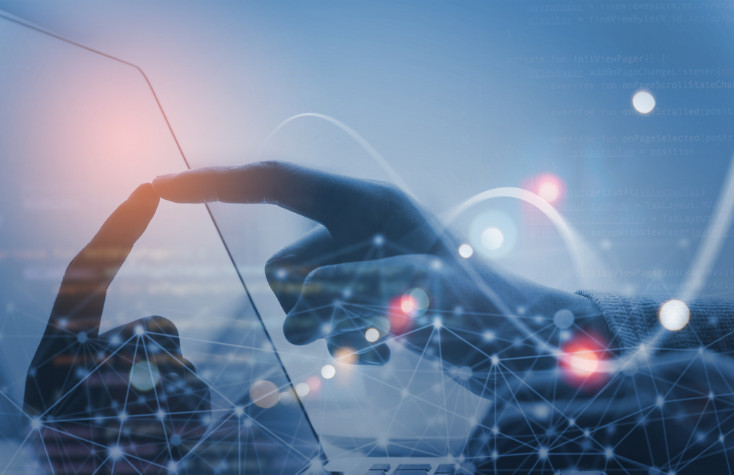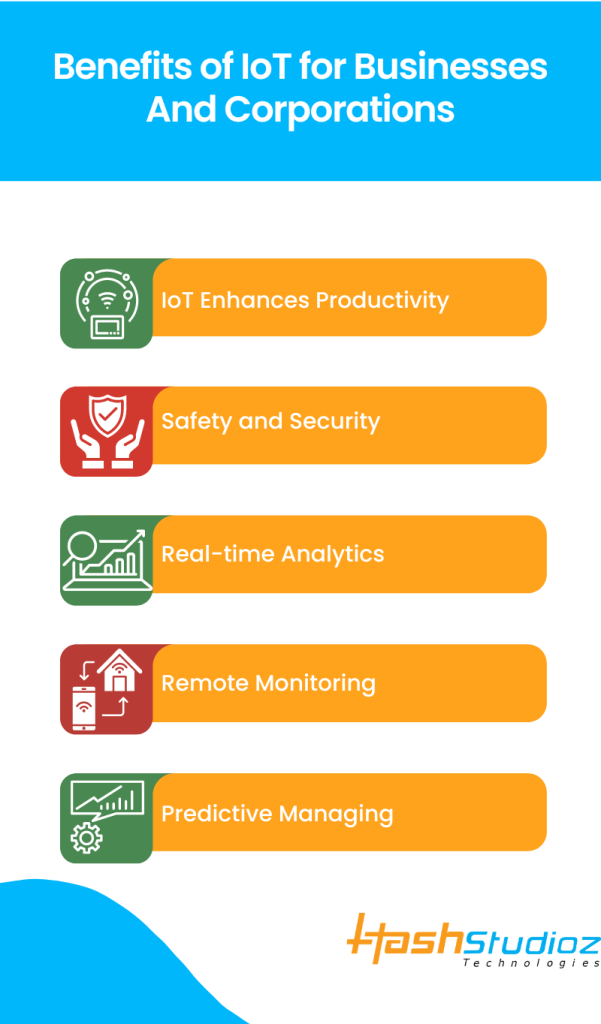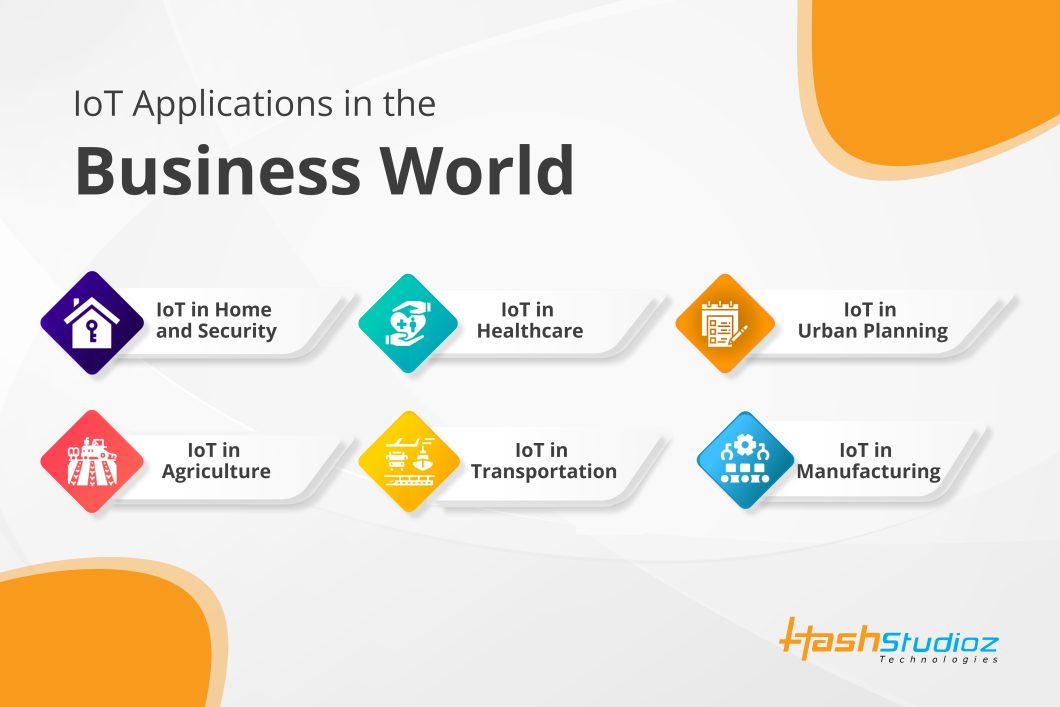The Ultimate Guide to the Benefits of Using IoT in Business
Here you can learn how to take advantage of the benefits of using IoT in your business and make better decisions with the data they provide.

Raise your hand if you have heard of the Internet of Things (IoT). Most of you must have your hands up. Keep your hand raised if you are aware of how the Internet of Things (IoT) functions in practice.
Well, if you are anyone like me, you must be scanning your brain quickly, trying very hard to recall and process information about how the Internet of Things (IoT) works from a piece of blog or article that you read several months ago. Also, maybe your arm is getting tired. I get it. I’d lower mine as well.
The Internet of Things is so hard to crack down on and remember that most of us will find ourselves thinking that we know the Internet of Things is here, but what precisely is it? And how is the IoT aspect impacting our lives? First and foremost, let us dive into what IoT is, how it will change the future, and how, as an entrepreneur, you can introduce it into your business with the help of IoT services.
What is the Internet of Things (IoT)?
“The Internet of Things is not a concept; it is a network, the true technology-enabled network of all networks.”
If the quote did not make sense to you and you are still juggling trying to understand how IoT is not a concept and a technology-enabled network, read on to get a better understanding of IoT.
IoT, or the Internet of Things, is a web of internet-connected devices that accumulate and share information and data across the network. To put it simply, IoT is an expression that is used to describe objects and things that are connected over the internet.
Do you wonder what all falls under the category of IoT that you must have been using on a regular basis? Well, your smart Apple Watch, your Google Home, and so on fall into this category. By now, we have generated the idea of what IoT devices are, plus you are currently using one to read this article too.
Yet again, you need to understand that phones and laptops are a small part of IoT. Furthermore, IoT devices include anything that can connect to the internet to send and receive data, and it turns out that anything can be connected that way.
Now let us imagine that you have a small-scale business. Can you still take advantage of the Internet of Things? Well, yes, you totally can, and chances are that you may already be benefiting from it. If you are intrigued by how that happens, let us dive in and look into the benefits of IoT for business enterprises.
Benefits of IoT for Businesses and Corporations

IoT Enhances Productivity
To secure profitability, businesses place a strong focus on increasing productivity and efficiency. IoT devices can help the manufacturing industry and others manage the various stages of production through the aspect of real-time tracking of parts and raw materials.
In addition, organizations can gather information on their workers to determine when they are most productive so that crucial tasks and meetings can be scheduled at the most productive hour.
In addition, by learning more about the market and your customers, you can increase the efficiency of your business.
Safety and Security
To avoid the aspect of compromising safety caused by the simplest cyberattacks, one needs to ensure that the connected devices are safe and secure. The most frequently used IoT devices are those that provide physical security and safety.
These devices help in bridging the gap between cyber and physical space. Physical security IoT devices include systems like surveillance cameras, door locks, smart safes, fire alarm systems, and access control systems.
Real-Time Analytics
One of the foremost benefits of the Internet of Things (IoT) is that it provides users with real-time analytics that help them analyze the problem and take action accordingly. In addition, the real-time analytics provided by IoT has proven to be a boon for several businesses, as you can analyze the issue and resolve it according to your convenience.
Remote Monitoring
The IoT helps monitor your equipment even in remote locations. It allows you to record the data points generated by your machines and processes to ensure that you manage your operations efficiently from a central location with ease.
Predictive Managing
IoT will help identify issues before they cause problems, rather than fix issues once they have already happened. If you have been searching for the best ways that can help you with the aspect of predictive management, then IoT development solutions from the experts of HashStudioz Technologies Inc. can help you.
By now, you must have clarity on what the Internet of Things (IoT) is and how it can help businesses with several aspects, such as improving efficiency, profitability, and scalability. If you are fascinated with the way IoT works and want to know more about IoT applications in the business world, read on.
IoT Applications in the Business World

1. IoT in Home and Security
Home security is one of the most important parts of our lives. Not to mention the fact that break-ins are extremely common these days. One is suggested not to leave their house unprotected, and therefore, taking security measures to brace the security system of one’s home is important. Furthermore, one can improve and work on the aspect of home security with the Internet of Things.
There are heaps of IoT devices that can help in monitoring any sort of suspicious activity. You will be able to monitor your house quickly and efficiently with smart security devices that are interconnected. Here are a few examples of the devices that are a crucial part of home security systems with IoT:
Smart Cameras
Smart cameras play an important role in home security systems. In addition, cameras that are connected to the internet are wirelessly connected and are accessible from anywhere. The list of these cameras includes door cameras, CCTV cameras, gate cameras, and in-house cameras
Biometric Locks
Systems for biometric locks are widely used today, especially in offices. These locks are a crucial part of home security as well. For instance, in modern houses with a smart home security system, entry is prohibited with biometric authentication.
The users can enter their houses with a facial recognition scan or a fingerprint scanner. Plus, these biometric locks are gaining popularity due to their all-around security. These locks also reduce the need for physical keys.
Fire Smoke Sensors
Again, fire smoke sensors play an important role in the home’s safety and security. Most smart homes come with a carbon monoxide detector, and these detectors have the tendency to alert you whenever there is an unusual or high level of carbon monoxide inside the house.
Gone are the days when you had to double-check the doors and windows before leaving the house; now, with the help of a few IoT smart devices, you can ensure your home’s overall safety.
2. IoT in Healthcare
In traditional times, the healthcare industry was confined to a few doctor visits and communications in the form of calls and texts. In such cases and arrangements, there was no way that the doctors could examine and monitor the health of the patients continuously and make medical recommendations then.
In today’s era, the introduction of the Internet of Things has made it possible in the healthcare industry to monitor patients remotely and make it a thing to help them stay healthy and safe. This way, the doctors will always be ahead of time in offering healthcare services of superior quality to their patients. Here are a few examples of which IoT can help the healthcare industry:
It Helps in Remote Medical Assistance
Remote patient monitoring is one of the most common applications of IoT devices in the healthcare niche. IoT devices can help in accumulating health metrics like heart rate, blood pressure, temperature, and more from patients that are not physically present in the healthcare facility.
This helps in eliminating the travel time of the patient to come and collect the data themselves. The reason for this is that when an IoT device collects patient data, it sends it to software where both healthcare professionals and the patient can view it.
Heart-Rate Monitoring
Monitoring the heart rate has been made simple with the help of the Internet of Things. In today’s generation, several small IoT devices are available for the purpose of heart rate monitoring. It also gives the patients the ability to move around as they like while ensuring that their heart rate is monitored continuously.
Robotic Surgery
Robotic surgeries performed by small IoT devices can eliminate the size of indecisions that are required to perform surgeries, which leads to less invasive processes and faster healing for the patients.
3. IoT in Urban Planning
In the aspect of urban planning, IoT is the key enabler, though a number of other technologies and services must be used to make smart city projects a reality. To develop smart city technology, cities must have access to important information on sustainability, artificial intelligence, and resilience to understand and analyze the data and improve city life.
Smart Internet of Things (IoT) solutions play an important role in the development of sustainable smart cities. IoT helps in reducing power consumption and costs and also plays a crucial role in preventing crime. Here are a few examples of which IoT can help in urban planning:
Traffic Management
IoT is used by smart cities to forecast traffic flow, adjust the timing of the signals, and help to cut down on travel time. By doing the same, smart cities are making their roads safer, reducing the levels of pollution, and also helping to improve the overall quality of life for their residents.
Smart Parking
The technology of IoT is used in the smart parking system to automate parking your vehicle. The systems contain sensors that help in analyzing the vacant spots in the parking area and help to find free parking spaces easily. Making use of this technology not only helps in saving the driver’s time but also helps in saving fuel.
Improved Public Safety by Using Predictive Maintenance
The aspect of predictive analysis helps the city officials manage the infrastructure and the resources of the city. It helps to maximize efficiency and minimize costs.
Lighting Management
The street lights can be connected to the sensors to turn on and off depending on where there is activity or when there is daylight in the city to save energy. The appearance and technology of smart lights have assisted the city in saving energy, as well as lowering crime rates due to increased visibility of dark corners.
As cities worldwide continue to make use of IoT technology, their citizens and the entire world can benefit from its use.
4. IoT in Agriculture
IoT in agriculture makes use of trending technologies like robots, drones, and remote sensors, with rapidly progressive machine learning and analytical tools for monitoring crops, mapping, and surveying the fields, and providing in-depth analysis of data to the farmers for rational farm management plans to help in saving both, i.e., time and money. Here are a few examples of how IoT is shaping and improving agriculture:
Precision Farming
This type of farming is also referred to as precision agriculture. The most important component of this farming is using information technology and several other technologies like robotics, sensors, controlled systems, automated hardware, and so on. This is considered one of the most famous applications of IoT in the agriculture sector. The IoT can help farmers with the aspect of precision farming with ease.
Monitoring of Climate Change
The most important smart gadgets for agriculture are weather stations. They are located across the fields and they help in collecting various types of data from the environment and then send it to the cloud. These agricultural IoT applications provide measurements that can be used to map the climate conditions, choose the most suitable crops, and take the required actions to improve their capacity.
Greenhouse Automation
With the help of IoT sensors, farmers can get accurate real-time information on greenhouse conditions, such as temperature, lighting, soil conditions, and humidity.
The use of IoT has enabled farmers to opt for smart farming, a technique that is hi-tech and intensive.
5. IoT in Transportation
The Internet of Things (IoT) in the transportation industry uses a large network of embedded sensors, smart objects, and other intelligent gadgets. This network gathers information about the current situation and sends it via specialized software to turn it into helpful information. Here are a few examples of major applications of IoT in transportation:
Efficient Traffic Management
One of the biggest segments within the travel industry is traffic management, and the adoption of IoT in this sector has been proven to be very efficient. The vehicle-related data is generated through CCTV cameras, and the data is transferred to traffic management centers to keep a closer look at the vehicles and call out vehicle owners who are violating traffic rules and regulations.
A few applications of IoT that help traffic and parking management in managing traffic are smart parking, automatic traffic light systems, and smart accident assistance.
Automated Toll and Ticketing
In comparison to the traditional toll and ticketing systems, IoT in transportation offers automated tolls, plus with the help of IoT smart sensors, managing the tolls and tickets has become much easier for the traffic police as well.
Enhanced Security for Public Transport
One of the most prominent areas in which IoT in transportation is found to be useful is the security of public transportation. Municipalities can take strict action and can track traffic violations by keeping an eye on every vehicle with the help of IoT devices.
The application of IoT in transportation is growing at a rapid rate, and the benefits of using IoT for transportation are endless.
6. IoT in Manufacturing
IoT promises to have a profound impact on the manufacturing industry, allowing them to plan, integrate, control, analyze, and optimize in a better way by creating a network of connected devices, humans, and systems.
Furthermore, having the right IoT partner can ensure the implementation of IoT solutions in the context of your business faster and more efficiently. Here are some examples in which IoT is transforming the manufacturing industry.
Supply Chain Management
With the help of IoT, there is complete transparency in the supply chain. Businesses gain more visibility and control in the supply chain from manufacturing plants to warehouses by embedding sensors in the goods or attaching monitoring devices to shipping containers.
Boosts the Quality
IoT sensors capture the detailed analysis of the data with the product specifications and other metrics, including information from third parties at different stages of the product cycle. This way, the manufacturers can analyze which product meets quality standards and requires a physical inspection, and it will help in boosting the quality of the product.
Improves Production Planning and Scheduling
The manufacturing industry can benefit from improved product quality and factory yields with the help of IoT solutions. In addition, with the help of IoT solutions, companies can experience better production planning and scheduling with real-time monitoring of the production lines.
If you are a manufacturer and want to grow your business and have been looking to develop mind-blowing IoT solutions, click here to learn more about it.
Conclusion
As you can see for yourself, IoT is rightfully regarded as one of the most promising digital technologies that will become more popular and will be used more in the upcoming years. Nevertheless, the current state of the Internet of Things (IoT) is very impressive, and its advantages for businesses are tempting.
Yet again, if you are intrigued by IoT and want to implement it into your business then you need to understand that integration of IoT into your business requires a lot of effort and skills to achieve the above-mentioned benefits without suffering from the drawbacks.
For the same reason, the most appropriate course of action is to use the services that are responsible and experienced professionals to get the most effective IoT solution for your business.
Contact HashStudioz Technologies Inc., and watch our skilled professionals provide you with efficient solutions specifically designed for integrating the Internet of Things in your organization.